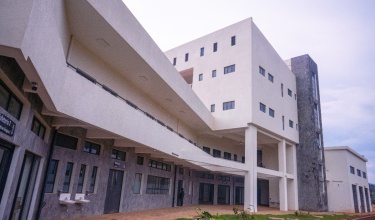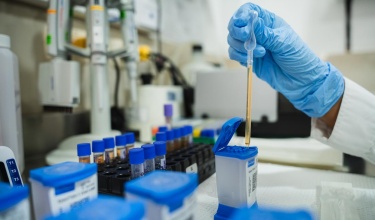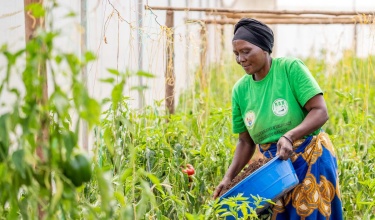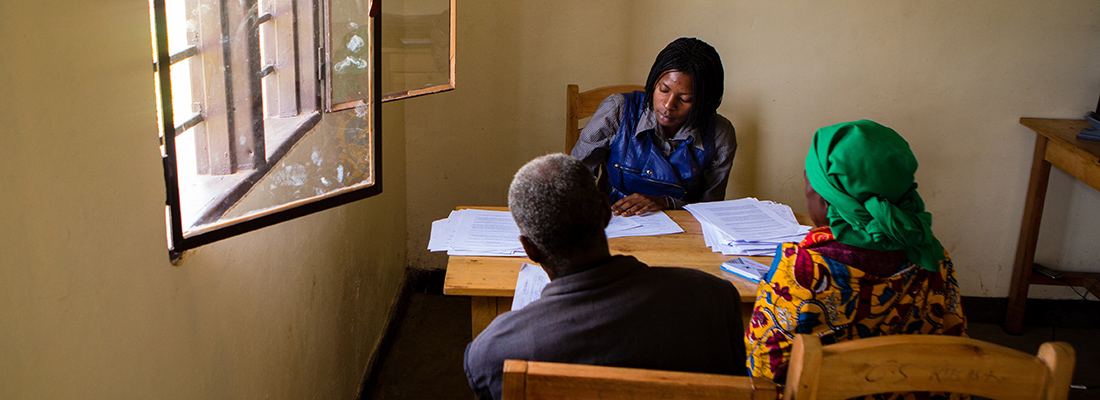

Rwanda
Rwanda
The 1994 genocide against the Tutsi in Rwanda led to the deaths of 1 million people—nearly 20 percent of the country’s population at the time—and displaced millions more.
The genocide also devastated the country’s government, societal infrastructure, and health system. In its wake, Rwanda became the world’s poorest country, with the world’s highest child mortality and lowest life expectancy at birth. More than 75 percent of children were not fully vaccinated. Many health workers had been killed or fled the country, and health facilities across Rwanda had been destroyed.
Recovery has been incremental—and remarkable.
Fueled by the government’s focus on health care for the poorest of the poor, leading to better health care for all, Rwanda’s life expectancy has doubled since 1995, while deaths from AIDS and tuberculosis have dropped steeply. Rwanda has become a global model for building strong health systems in resource-limited settings.
Partners In Health has been proud to play a part in that recovery and growth. Known locally as Inshuti Mu Buzima, PIH has worked in Rwanda since 2005, helping the government fight HIV, improve maternal and child health, and bring integrated, high-quality health care to more than 860,000 people across Burera, Kayonza, and Kirehe districts.
Our Impact
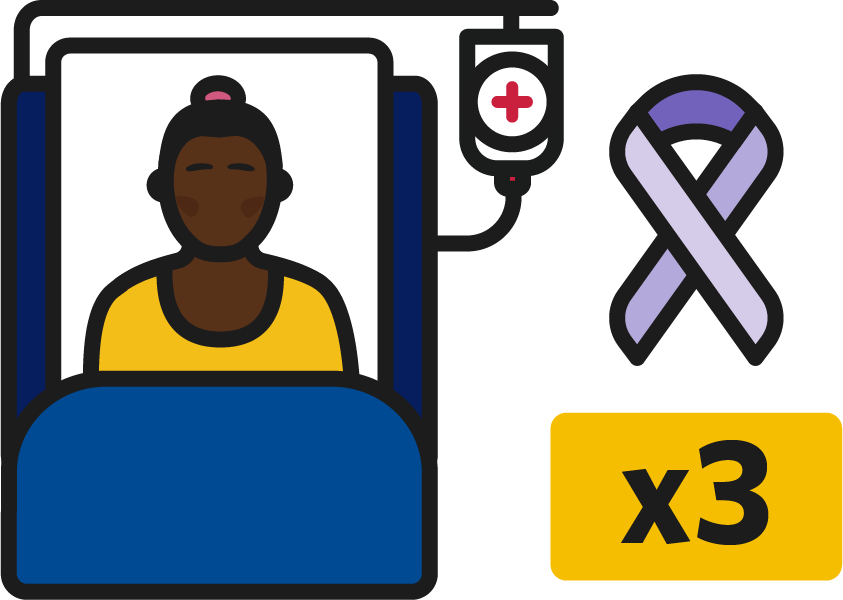
Tripling our cancer care in less than a decade.

Increasing access to mental health care in communities.
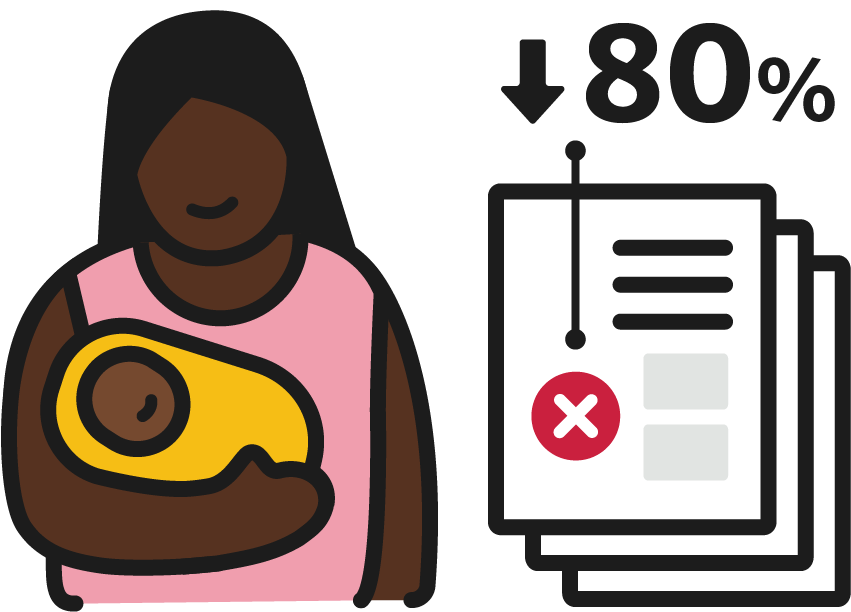
Decreasing maternal mortality by 80%
Integrated Cancer Care
An important part of that work is at Butaro District Hospital in the northern district of Burera. Opened in 2011, Butaro brings modern medical care and a broad range of services—from emergency treatment to outpatient checkups, and more—to a mountainous region that borders Uganda and the Democratic Republic of Congo. Butaro also has become a center for medical education in East Africa, with top clinicians regularly leading training programs.
The Butaro Cancer Center of Excellence opened in 2012 and now treats more than 1,700 patients a year, young and old, on the hospital campus. Many people travel to Butaro from across Rwanda, or from surrounding countries where high-quality cancer care is scarce or nonexistent.
Recognizing that quality care must address all of patients’ needs, including the ability to access that care, PIH in 2019 opened the Butaro Cancer Support Center, which provides free, long-term housing on the hospital campus for patients, family members, and caregivers during extended treatment.
Maternal and Child Health
Women with complicated pregnancies and babies born prematurely often are direly underserved in resource-limited settings. Inadequate support can lead to maternal deaths or childhood malnutrition and health problems that otherwise would be preventable.
To address this gap, PIH is supporting Rwanda’s Ministry of Health on a multi-faceted, multi-year approach to strengthening care for mothers who experienced complicated deliveries and for premature infants.
Programs at PIH-supported Kirehe District Hospital and Rwinkwavu District Hospital, in Rwanda’s southeast, train new mothers in breastfeeding techniques and help them assess health risks for their newborns, among other parenting skills. Kirehe’s neonatology department is a shining example of high-quality care at a rural district hospital.
Pediatric development clinics at health facilities across the Kirehe and Rwinkwavu areas provide medical, nutritional, and developmental care for infants with low birth weights, in their critical, early years of life, through parental education and support.
More than 1,500 children in Kirehe and Rwinkwavu benefit from the clinics, which include structured follow-ups designed to improve infants’ long-term health, physical growth, and developmental outcomes.
Social Support and Mental Health Programs
PIH in Rwanda also supports the government on a national social support campaign, begun in 2013, that has given rise to agricultural incentive programs across the country. Because PIH philosophically and practically sees social support as a vital part of treatment and prevention strategies, PIH teams in Rwanda build and strengthen livelihood programs—such as rice farming in Rwinkwavu and community savings groups in Burera—that address the social determinants of health and help people acquire sustainable resources to live healthy lives.
Mental health care is a vital part of this work. PIH’s mental health program in Burera, for example, fosters community groups that bring neighbors together to talk about mental health issues and break down stigma that can be a barrier to treatment.
University of Global Health Equity
The University of Global Health Equity (UGHE) is a Partners In Health initiative launched in 2015, in collaboration with Rwanda’s government and with catalytic funding from the Bill & Melinda Gates Foundation and the Cummings Foundation.
The private university in Burera District is about 80 miles north of Kigali, Rwanda’s capital. UGHE has an innovative focus on equity and social determinants of health, pairing education in human rights and social justice with rigorous, community-based medical training.
UGHE’s initial students earned master’s of science degrees in global health delivery, through a two-year program offered in Kigali and by remote work. The January 2019 inauguration of the Butaro campus not only has enabled students to earn the degree in one year, but also has transformed infrastructure, accessibility, and employment in the Butaro community. PIH-supported Butaro District Hospital is just two miles away and will serve as a teaching hospital for students. Additionally, all three districts PIH serves in Rwanda will provide unique research and training opportunities for students.
In summer 2019, UGHE launched its medical degree program, welcoming 30 students to earn bachelor’s degrees in medicine and surgery, along with the master’s in global health delivery, over six and a half years of study. UGHE’s growth comes at a time of severe need for qualified health care workers across Africa. The World Health Organization estimates the continent will have a shortage of more than 6 million health care workers by 2030.
The inaugural medical class of 2025 includes 20 women and 10 men, all from Rwanda, pursuing their education to take on health challenges, become leaders in the field, and ensure that Rwanda’s growth continues for generations to come.
Featured Rwanda Videos
To learn more about Inshuti Mu Buzima, check out their website by clicking the button below:
